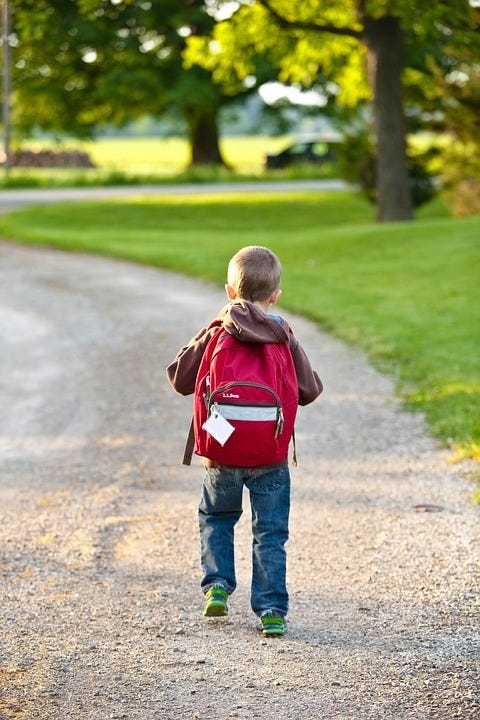![The American Academy of Orthopedic Surgeons recommends the backpack’s weight should be less than 10-15 percent of a child’s body weight. Usually, children don’t wear their packs correctly, increasing risk of injury, according to the AAOS. [Pixabay.com]](http://127.0.0.1/wordpress/wp-content/uploads/2022/01/ghows-DA-4fde5991-f9b5-063e-e053-0100007f06ed-d8a66862.jpeg)
MILTON — A local parent is concerned about the weight of children’s backpacks.
“My son actually suffered a concussion [May 25] because he accidentally tripped and his 40 [pound] backpack whacked him [on] the back of his head,” Jenny Thomas of Pace said. “My daughter weighs about 70 [pounds] and starts middle school next year, and will have to carry a backpack more than half her body weight. It’s ridiculous.”
Thomas would not say which school this occurred at, but it’s a common issue.
According to the U.S. Consumer Product Safety Commission, at least 14,000 children are treated for backpack-related injuries every year.
The American Academy of Orthopedic Surgeons recommends the backpack’s weight should be less than 10-15 percent of a child’s body weight. Usually, children don’t wear their packs correctly, increasing risk of injury, according to the AAOS.
“Improperly used backpacks may injure muscles and joints and can lead to severe back, neck, and shoulder pain, as well as posture problems,” orthopedic surgeon and AAOS spokesperson Daniel Green said in an interview with the Huffington Post.
Elise Hewitt, president of the American Chiropractic Association’s Pediatrics Council, said in an interview with the Huffington Post that children should use waist straps with backpacks.
Floyd Smith, the director of middle schools for the Santa Rosa County School District, said this is only a problem because students carry around some unnecessary weight.
“I worked in middle school and high school basically my whole career, and students know that there are alternatives, and parents do as well, to carrying every book in your backpack,” Smith said. “We as a district pay for books for every student and many times those students are told that they can leave those books in the classroom if they prefer or they can take them home for homework.
“In most of our academic subjects, there are what we call consumable workbooks that really go home for homework purposes and things of that nature.”
According to Smith, students often are not required to carry home hardback textbooks.
“If any parent has an issue with their student and the weight of their backpack, they are more than welcome to call the school administrators and work with that administration and those teachers to figure out a way to lighten the load of a backpack,” he said. “Many times parents are unaware of the different ways that they can lighten the load in a backpack.”
“… Many times the schools will say, ‘You can keep the book at home, we have a class set in every class so that the student doesn’t have to transport the book back and forth, and we have given [them] much lighter workbooks that [they] can take back and forth because that’s where the homework is assigned from.’”
Smith said the only time a student really needs to carry every book in their backpack is on the first day of school, when they are bringing home all their items, and at the end of the year when they are returning all the textbooks.

This article originally appeared on Santa Rosa Press Gazette: Too heavy a load?
